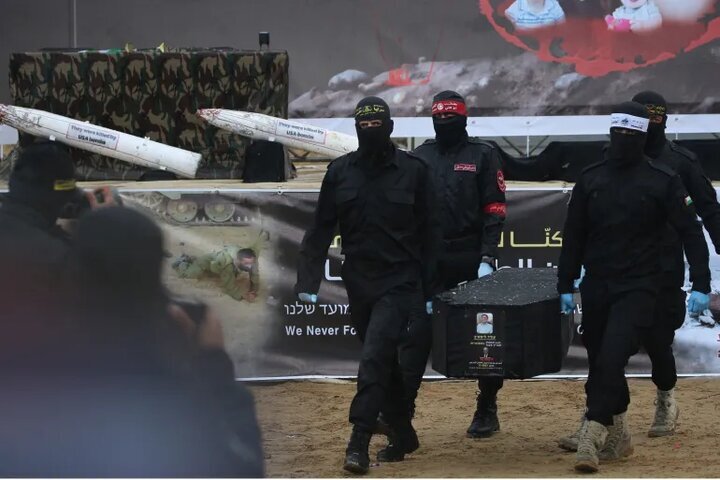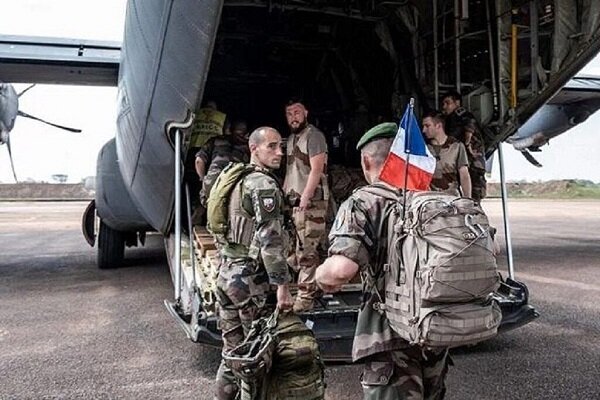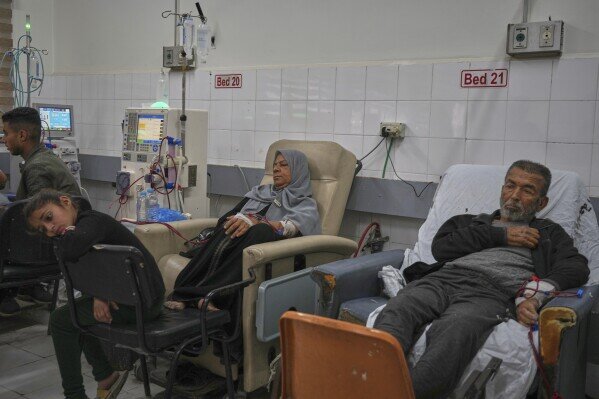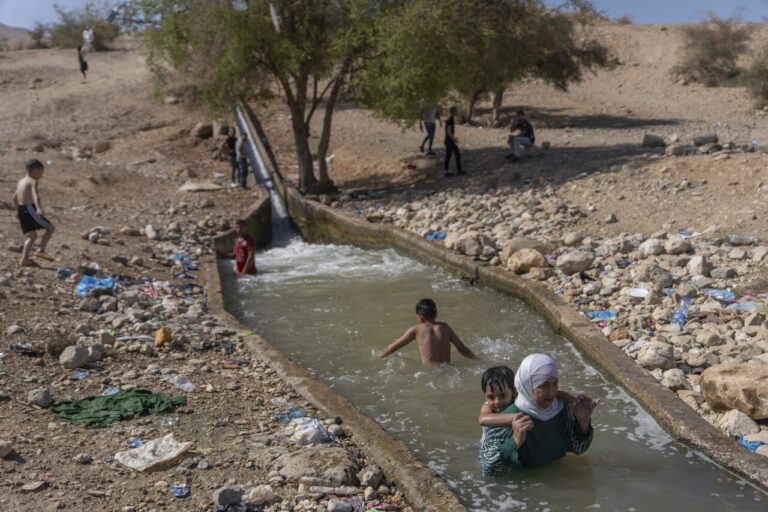Hamas Transfers Israeli Captives’ Remains to Red Cross: A Significant Humanitarian Gesture
In a poignant display of loss and heartbreak, Palestinian fighters transported four black coffins onto vehicles from the International Committee of the Red Cross (ICRC) in Khan Younis, southern Gaza. This somber event highlights the ongoing humanitarian crisis and the challenges faced by families affected by the conflict.
On Thursday, the ICRC took measures to shield some of the onlookers from witnessing the loading of the coffins. These black coffins were prominently displayed on a stage prior to the handover of the bodies of the captives. Each coffin bore a photograph of the deceased, including notable individuals such as Shiri Bibas and her two young sons, Kfir and Ariel, alongside a fourth captive, Oded Lifshitz.
Hamas’s Statement on Captive Lives
In a recent statement, Hamas expressed its sorrow regarding the fate of the Israeli captives, asserting that it had aimed to keep them alive. They alleged that the captives were killed due to the Israeli army’s actions under the directive of Prime Minister Benjamin Netanyahu, who insisted on the continuation of military operations in Gaza.
- Claims of Preservation: Hamas claimed to have preserved the lives of the captives, providing them with care and humane treatment.
- Allegations of Responsibility: They accused the Israeli forces of killing the captives, stating, “their army killed them along with their captors.”
- Netanyahu’s Reaction: Hamas criticized Netanyahu, suggesting that his public mourning over the deaths was an attempt to evade responsibility for their demise.
Hamas further addressed the families of the deceased Israeli captives, particularly the families of Bibas and Lifshitz, stating, “We would have preferred your sons to return to you alive, but your army and government leaders chose to kill them instead of bringing them back.” This statement underscores the tragic consequences of the ongoing conflict and the deep divisions between the parties involved.
The Broader Context of the Conflict
The situation in Gaza remains dire, with the ongoing military actions exacerbating the humanitarian crisis. Many families are caught in the crossfire, experiencing grief and loss on both sides. The international community continues to grapple with the complexities of the conflict, calling for dialogue and peaceful resolutions.
In recent months, there have been numerous reports highlighting the plight of civilians affected by the violence. The casualties among non-combatants raise critical questions about the conduct of military operations and the protection of human rights.
- Rising Casualties: The toll on civilian life has been significant, with thousands displaced and many more suffering from trauma.
- Humanitarian Aid Challenges: Access to essential services, including medical care and food supplies, has been hindered due to the conflict.
- Calls for Ceasefire: Various organizations and governments are advocating for a ceasefire to allow humanitarian aid to reach those in need.
The ongoing tension between Israel and Hamas continues to fuel discussions about potential solutions. Many voices in the international community stress the need for a renewed commitment to peace negotiations and a focus on addressing the root causes of the conflict.
As the families of the deceased mourn their losses, the broader implications of these tragic events resonate throughout the region. The hope for a peaceful resolution remains a distant goal, but it is one that many continue to strive for amidst the turmoil.
In conclusion, the heartbreaking event in Khan Younis serves as a stark reminder of the human cost of conflict. The statements from Hamas and the ongoing situation in Gaza highlight the urgent need for dialogue and reconciliation to prevent further loss of life and to foster a more hopeful future for all affected by this ongoing crisis.






